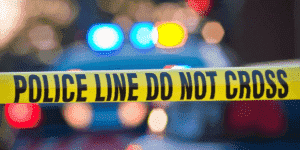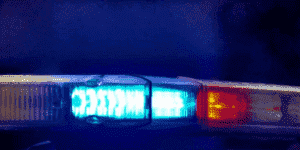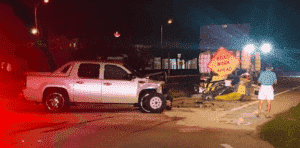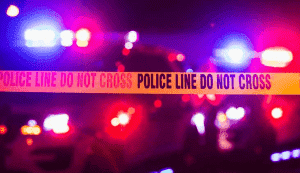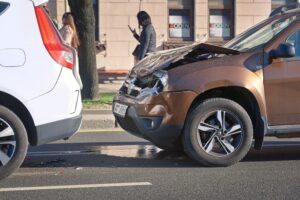
Rear-end collisions are among the most common traffic accidents in Miami. If you were rear-ended while driving along I-95, Biscayne Boulevard, or anywhere in Miami-Dade County, you may be wondering how fault is proven and what your legal options are.
Proving negligence is the key to recovering compensation after a rear-end crash. Below, we’ll explain how a Miami rear-end collision lawyer establishes fault, what evidence they use, and why professional legal representation can be a benefit when pursuing compensation.
Understanding Negligence In A Miami Rear-End Collision
Negligence is a legal concept that means someone failed to act with reasonable care, causing harm to another person. Under Florida law, the driver who strikes another vehicle from behind is presumed negligent in most cases. This presumption exists because every driver has a duty to maintain a safe following distance and stay alert to traffic ahead.
Rear-end crashes in Miami are frequently linked to:
- Distracted driving (texting, adjusting GPS, eating)
- Speeding on congested roads
- Tailgating in stop-and-go traffic
- Fatigued or impaired driving
- Failing to account for rain or slick road conditions
While negligence may seem obvious, proving it in court or to an insurance company requires clear, credible evidence, something a Miami car accident lawyer knows how to gather and present effectively.
The Four Legal Elements That Build A Negligence Case
Every negligence claim must establish four critical elements:
- Duty of Care: Every driver on Miami’s roads owes others a duty to drive responsibly, obey traffic laws, and maintain control of their vehicle.
- Breach of Duty: The other driver must have failed to meet that duty, such as by tailgating or texting while driving.
- Causation: The attorney must prove that the driver’s careless action caused the collision and the resulting injuries.
- Damages: Finally, you must show that you suffered actual losses, such as medical bills, lost wages, or vehicle damage.
Each of these elements works together to form a foundation for your claim. A personal injury lawyer in Miami uses documentation, witness statements, and expert testimony to tie these elements together into a clear, persuasive argument.
The Evidence Miami Lawyers Use To Prove Fault
Proving negligence is all about evidence, and in rear-end cases, that evidence can come from several powerful sources:
- Police Reports: The responding officer’s observations, any traffic citations issued, and official crash diagrams can strongly support your claim.
- Dashcam or Traffic Camera Footage: Many Miami intersections and highways have cameras that may have recorded the crash sequence.
- Witness Statements: Bystanders can confirm whether the other driver was speeding, distracted, or failed to brake in time.
- Vehicle Damage Analysis: Rear-end damage patterns often clearly indicate which car struck the other.
- Event Data Recorders (“Black Boxes”): These devices, found in most modern vehicles, capture speed, braking, and acceleration data seconds before impact.
- Cell Phone Records: If the at-fault driver was texting or making calls just before the crash, this data can prove distracted driving.
A lawyer knows how to secure and preserve this evidence quickly, often before it can be lost or altered.
Florida’s Comparative Negligence Rule Can Change The Outcome
Florida follows a modified comparative negligence system, Florida Statutes § 768.81. Under this statute, you can recover compensation even if you were partially at fault, but your compensation is reduced accordingly. For example, if a Miami driver is 20% responsible, their compensation would be reduced by 20%.
However, if your share of the blame is greater than 50%, you cannot recover compensation.
Because insurance companies often try to shift more blame onto victims to pay less, a lawyer who understands Florida’s negligence laws can protect you from abusive insurers.
When Proving Negligence Isn’t Simple
Although rear-end collisions might seem straightforward, not every case is clear-cut. Challenges can arise when:
- Multiple vehicles are involved in a chain reaction crash.
- Witnesses give conflicting accounts.
- There’s limited or no video footage.
- Injuries develop days or weeks after the crash, creating disputes about causation.
In such cases, your attorney’s ability to investigate, question witnesses, and interpret physical evidence can determine whether you’re able to recover full compensation.
How Accident Reconstruction And Experts Strengthen A Case
When the facts are disputed, Miami car accident attorneys often work with accident reconstruction experts to piece together what really happened. Using data from vehicle damage, skid marks, traffic patterns, and black box downloads, these experts can simulate the moments leading up to the collision.
Medical professionals may also provide expert testimony to link your injuries, such as whiplash, back trauma, or head injuries, to the impact’s force. This scientific support can be invaluable during settlement negotiations or trial presentations.
What A Miami Rear-End Collision Lawyer Actually Does To Prove Negligence
From the moment you contact a law firm, the legal process begins. A Miami lawyer typically:
- Reviews the crash details and gathers all available evidence
- Communicates with insurers to protect you from lowball offers or damaging statements
- Preserves critical data, such as dashcam footage or vehicle black box recordings
- Works with investigators and experts to reconstruct the accident
- Documents your losses, from medical care at Jackson Memorial Hospital to missed time from work
- Negotiates for a fair settlement, and if necessary, prepares for a trial
A proactive, responsive attorney ensures that every detail is handled while you focus on recovery.
Damages You May Recover After A Rear-End Collision In Miami
Once negligence is proven, victims can seek compensation for both economic and non-economic losses, including:
- Emergency medical treatment and ongoing rehabilitation
- Lost income and future earning potential
- Vehicle repair or replacement costs
- Pain, suffering, and emotional distress
- Transportation costs and other out-of-pocket expenses
Because Florida’s no-fault insurance laws can limit recovery, proving the other driver’s negligence may allow you to pursue additional compensation beyond your personal injury protection (PIP) benefits.
What To Do Right After A Rear-End Crash In Miami
If you’ve just been rear-ended in Miami, taking the right steps can protect both your health and your claim:
- Get medical help immediately.
- Call 911 and obtain an official police report from the Miami-Dade Police Department.
- Exchange information with the other driver and gather contact information from witnesses.
- Document the scene with photos of damage, injuries, and surroundings.
- Notify your insurance company promptly.
- Reach out to a lawyer early to preserve evidence and handle communication with insurers.
These simple actions can make a major difference when it comes time to prove negligence and secure fair compensation.
Contact Anidjar & Levine For Help Proving Negligence
Proving negligence after a rear-end collision isn’t just about assigning blame; it’s about protecting your future. Anidjar & Levine has helped countless Miami residents rebuild after serious accidents by investigating every detail, standing up to insurers, and fighting for fair compensation.
If you were rear-ended anywhere in Miami-Dade County, contact Anidjar & Levine today for a free consultation. Speak with a team member to learn your legal options and find out how a rear-end collision lawyer can help you take back control of your life.







